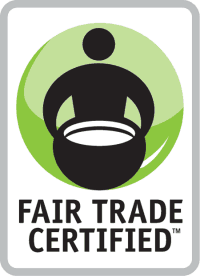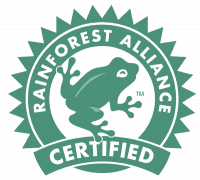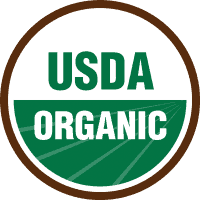Coffee drinkers want to know that their purchases are helping to support a robust coffee industry, a healthy environment, and good working and living conditions for farms and communities who make their livelihood from coffee. If the world is to continue enjoying coffee at its current rate and beyond, changes need to be made. The problems are large and complex, but there are also innovative answers and solutions being developed.
What is Sustainability?
According to the dictionary, sustainability means “the ability to be maintained at a certain rate or level.” And since the world drinks 2.25 billion cups of coffee annually, this is no small feat.
In the 1990s, the coffee industry began to raise the alarm that coffee production was likely headed for a crisis. Environmental factors, growing demand, industry practices, and other considerations were all playing their part in creating a dire outlook. It was around this time that the term “sustainable coffee” came into being.
When it comes to coffee, the concept of sustainability takes on a very broad and complex matrix of issues and goals. There are no standards or guidelines that define where these efforts begin and end for the industry as a whole. Although, there are several large certification organizations, which are growing in power, scope and requirements for compliance.
Basically, sustainability in the coffee industry aims to ensure that future production can keep pace with growing demand, while at the same time:
- Continuing to improve the quality and amount of the coffee produced
- Improving economic and social conditions for farmers, workers and communities
- Treating the environment responsibly
What these efforts look like is different for each part of the chain.
Current Sustainability Issues in the Coffee Industry
There are many factors that affect the sustainability of coffee as the world’s second-most traded commodity (only eclipsed by crude oil).
Here is a sample of the issues facing the coffee industry:
- Climate change affecting growing conditions, yields, and changing growing areas
- Market volatility
- Political conflict
- Coffee growers leaving to go into more profitable work
- Demand for organically grown products
- Deforestation caused by destructive farming methods
- Sub-optimal farming methods with low yields
- Difficulty in finding an adequate work force for seasonal jobs
- Lack of small business opportunities, knowledge and connections for producers
- Small farms not a profitable venture because of economic and business roadblocks
- Unsafe and unhealthy working conditions
And here are some of the ways the coffee industry is combatting these issues:
- Coffee research and education through specialized programs and facilities
- Development of new farming methods
- Stimulating demand for sustainable coffee
- Certification programs
- Entrepreneurship education and economic opportunities for young farmers
- Industry and government partnerships
- Use of eco-friendly packaging and serving accessories
- Community programs and outreach
There is not much data yet as to whether sustainability efforts are having the desired effect. And in some cases, there is evidence of unintended negative effects. It will take time to discover what is working, what is not, and make necessary adjustments. It is really a never-ending pursuit of continual improvement.
 |
This short video from Counter Culture Coffee explains how their organization thinks about sustainability as a continual process, not a one-time pass/fail event. |
Sustainable Coffee Certifications
There are four main sustainability-related certifications that coffee can currently receive.
Be aware that even products that are certified are not completely sustainable. They simply meet the standards set by each organization, which vary widely in scope and degree.
If you are interested in supporting sustainability efforts, get to know the details of what these certifications mean so you know what you’re contributing to. Then look for them when you purchase your coffee.
See our growing Big List of Certified Sustainable Coffees.
 Fair Trade USA Fair Trade certifications “work to help build an economy that supports a better life for farming families.” Some of the stated goals are: providing producers access to markets, pricing at fair market value, forming trade relationships, and providing advocacy. |
 This seal “indicates that a farm has been audited to meet sustainability standards relating to environmental, social, and economic factors.” Producers must meet standards that cover multiple areas of compliance. Only 30% of a producer’s beans must meet these requirements for the seal to be used on packaging. |
 The Smithsonian Migratory Bird center designed this certification to “ensure tropical agroforests are preserved for migratory birds.” It has “the most robust shade and habitat standards of any certification.” To qualify, a producer must meet standards regarding the forest canopy, and the coffee must be certified organic. |
 This certification was “put in place to create a verifiable sustainable agriculture system that produces food in harmony with nature, supports biodiversity, and enhances soil health.” Standards include not using any prohibited substances for at least three years, among other requirements. |
More Resources
For more information about sustainable coffee, see these resources that represent different perspectives on the subject.
Sustainable Coffee Challenge
Women in Coffee
UC Davis Coffee Center
Coffee Kids
International Coffee Association
National Coffee Association
Conservation International
